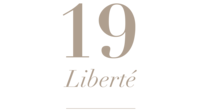After breathtaking rallies in the second half of April and May, global equity indices continued to perform well, albeit more moderately. The global index rose by 1.05% in euros.
Most investors have put the shockwaves caused by tariff announcements behind them and started buying again, pushing index valuations up.
The equity market is also riding the wave of inflation, which had previously had little effect. While some economic statistics have come out below expectations in recent weeks (real estate and retail sales in particular), the fact that inflation is still not being impacted by tariffs makes for a calmer environment for equities.
Controlled inflation has enabled members of the US Federal Reserve (Fed) to express rather dovish views on monetary policy. The Fed has paused its action for the time being and is continuing to discuss possible rate cuts in the second half of the year. That said, Fed Chairman Jerome Powell - much maligned by Donald Trump - has reiterated his cautious view and expects inflation to rise much higher due to the new tariffs.
In addition, despite the geopolitical troubles between Iran and Israel, which briefly sent oil prices soaring, investors kept their heads cool and the indices recovered as soon as prices began to ease.
Yields naturally benefited from the leniency with regard to inflation and tariffs. With the impact on inflation still not being felt, the US 10-year yield eased from 4.40% to 4.23%, and the market expects a further decline over the next 18 months.
In Europe, the German 10-year sovereign yield rose slightly from 2.49% to 2.61% against a backdrop of military and infrastructure spending plans. At the same time, inflation is under control in Europe and is not putting any upward pressure on yields.
Meanwhile, the foreign exchange market remains volatile. The dollar continued to weaken against the euro, more sharply so in June, falling from 1.14 to 1.18. The lack of political visibility in the US and a certain willingness by the US administration to allow the dollar to weaken to increase productivity are not helping to improve the outlook for the greenback.
This weakening in the dollar inevitably had an impact on portfolio performance. While US equities had gained 5% in US dollar terms at the end of the month, the European investor pocketed “only” 1.35%. Admittedly, this is better than the performance of -1.30% on the European indices, but the effect is nonetheless significant.
Overall, our recommended allocation is moderate. US equity markets are trading with high valuations, adding to their vulnerability. US politics is still a risk factor and has inspired international diversification: Europe is benefitting as it retakes control of its destiny while emerging countries are benefitting from a weaker dollar. In addition to high valuations, the risks on the dollar reduce visibility on the US market.
From a sectoral point of view, Communications Services remains in favour, particularly companies exposed to the AI theme. In addition, the European real estate sector, which has been overweight for several months to take advantage of the fall in key interest rates in Europe, is being replaced by the Basic Materials sector, which is deemed likely to benefit from government spending plans in Germany, particularly in infrastructure and defence.
In fixed income, extending duration remains unattractive unless a recession looks likely. However, on corporate debt, duration remains close to that of the market with priority given to carry and quality.
